Search Images
Browse Content (p. 1735)
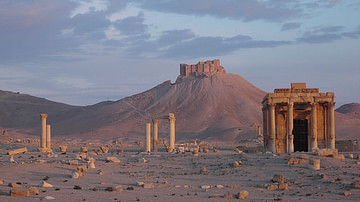
Image
Palmyra Castle
Photo of Palmyra's 13th century CE Mamluk castle with ancient ruins in the foreground.
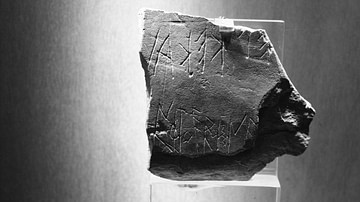
Image
The Earliest Attic Graffito on Stone from the Acropolis
This is an amazing example of one of the earliest examples of Greek writing, dating to the 8th C. BC. It is written "boustrophedon", which means, rather than being read as English is, from left to right, every other line is flipped over...
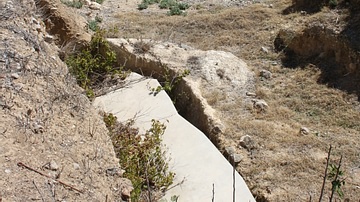
Image
Dendra: Chamber Tomb 12
Chamber Tomb 12 at the site of Dendra, is most famous as being the tomb from where the Dendra Panoply came from, and like that panoply, dates to around the end of the 15th century BC. Unlike the rest of the chamber tombs at Dendra, this one...
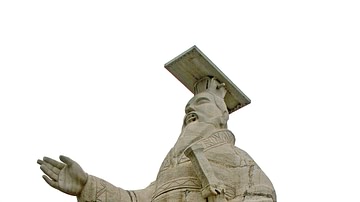
Image
Shi Huangdi
A statue of Shi Huangdi (259-210 BCE, also known as Qin Shi Huang, Qin Shih Huandi, Shih Huan-ti and Shi Huangti) who was the first emperor of a unified China. Xi'an, Shaanxi, China.
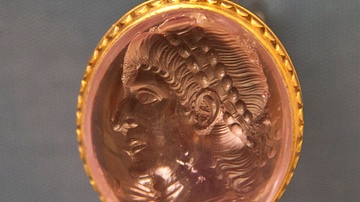
Image
Roman Emperor Constantius II
An engraved amethyst ring of Roman Emperor Constantius II, c. 360 CE (British Museum, London)
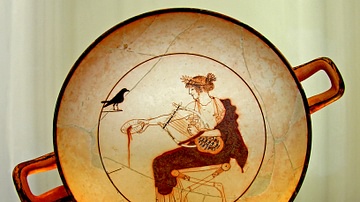
Image
Apollo with Lyre
A kylix depicting the god Apollo pouring a libation and holding an early version of the lyre (chelys) which was made from the shell of a tortoise. The bird may represent the crow which announced the marriage of the nymph Aigle-Korone, the...
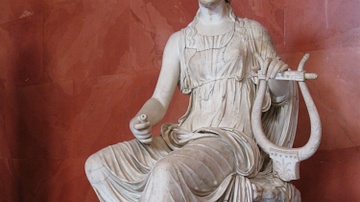
Image
Terpsichore - the Muse of Dance
A statue of Terpsichore, the Greek Muse of Dance. A 2nd century CE copy from a Greek original (The State Hermitage Museum, St. Petersburg).
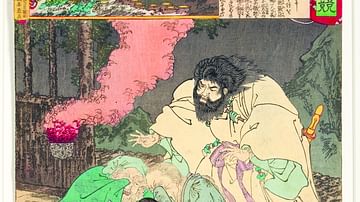
Image
Susanoo
An 1886 CE print by Toyohara Chikanobu of Susanoo, the Shinto storm god. Here he is about to rescue the beautiful Kushinada Hime from the serpent monster Yamato-no-Orochi. (San Diego Museum of Art).

Image
The Gospels
A 12th century CE cover of the Sion Gospels from the Victoria and Albert Museum, London.
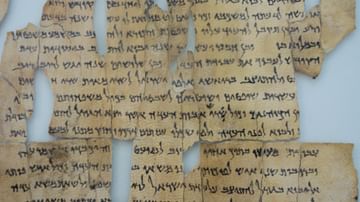
Image
Dead Sea Scrolls
The Dead Sea Scrolls (DSS) are a collection of scrolls found in the desert east of Jerusalem on the shore of the Dead Sea. They represent the largest manuscript collections of texts from the Second Temple Period found in the area of Judah...